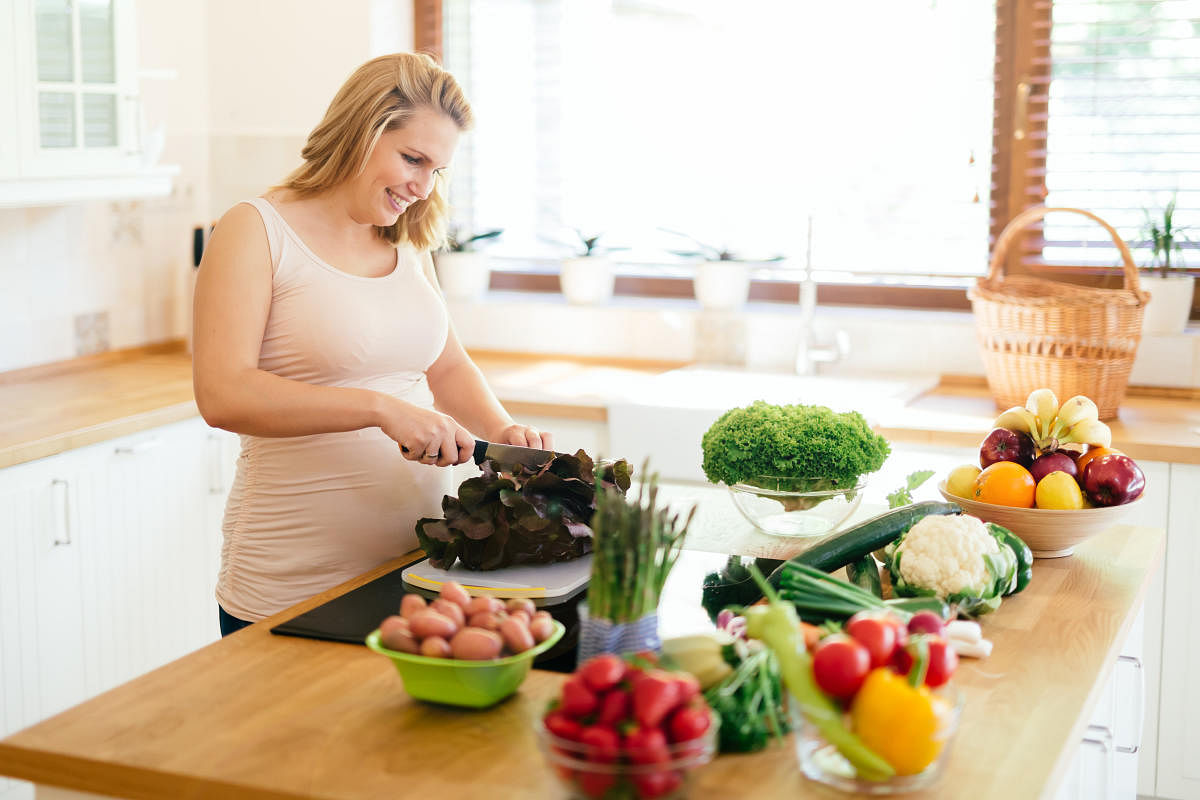
The first 1,000 days of human life is a unique window of opportunity for us to shape our lifelong health. The quality and quantity of nutrition we consume from conception through our second birthday can have a profound effect on our health and the most crucial of that period is the 270 days of pregnancy.
For a woman, having a baby is a momentous, life-changing experience mixed with joy, excitement and anxiety. Nutrition during pregnancy is of critical importance for short and long-term health outcome. Attaining healthy weight gain is important to promote healthy pregnancy. A pregnant woman needs to think about eating for two people but that doesn’t mean eating double the quantity, a common misconception.
A diet of a pregnant woman should constitute all food groups like cereals and grains, pulses and dals, dairy products, fruits, vegetables, fats and oils in the right quantity. A typical diet plan of a pregnant woman would include having a glass of milk with two slices of wheat bread or toast in the early morning around 6-7 am, a breakfast around 8-9 am which would include a plate of poha or two medium size paranthas with curd along with a cup of tea/coffee. A bowl full of fruits, salad or soup at 11 am, a complete lunch which includes roti, green vegetables, rice, and dal between 1 pm –2 pm, an evening snack around 5 pm which can be a sprout chat or churmura and chana bhel or a glass of milk. This can be followed by a wholesome dinner with roti, rice, dal, vegetables and raita between 7-8 pm and a late-night light snack around 10 pm if needed. This could be a low-fat yogurt with nuts and seeds. A person with a non-vegetarian palate can have eggs for breakfast and a fish curry or chicken for lunch.
Nutrient-rich diet
The nutrient requirements of a pregnant women are different from that of a non-pregnant, non-lactating (sedentary) woman. Requirements increase as pregnancy progresses and there is increase in the maternal weight. All the nutrients are important during pregnancy. However, few nutrients are more important like protein, iron, calcium, DHA and folic acid. The protein requirement of a sedentary woman is 55g/day and it is 78g/day for a pregnant woman. An additional 23g/day of protein is required by a pregnant woman. It is important to include food which is rich in protein in the diet. These include food items like milk, lentils, beans, soya, egg, meat and protein-rich nutrition supplements that are tailored for the nutritional needs of pregnant women.
Fill up on iron & folic acid
About 35 mg of iron needs to be consumed every day. Iron is crucial for the development of the brain and the functions of a baby. It is also required for production of red blood cells. Folic acid is required to prevent neural tube defects, and for production of DNA. Common sources of folic acid include green vegetables, beans and orange juice. About 500 mcg of folic acid is required every day. Iron & folic acid supplements are often recommended by doctors and it is important to take these supplements throughout the pregnancy. Calcium is essential for the formation of baby’s bones and teeth. About 1200 mg of calcium is required by our body. It is important to include milk and milk products in the diet. Docosahexaenoic acid (DHA) is one of the most important fatty acids for brain growth and development both during pregnancy and infancy. DHA is important for the growth and development of the foetal central nervous system and retina.
Vitamin C-rich fruits should be consumed to enhance iron absorption. These fruits include orange, amla, strawberries and guava.
Iron and calcium rich foods or supplements should not be consumed together as they prevent absorption of each other in the body. It is better to keep a gap of one-two hours. Fluids are very important during pregnancy. They carry all the nutrients to the body cells and also remove waste from the body.
They help transportt the nutrients to the placenta. It is ideal to have 2-3 litres of fluids (8-12 cups) daily.
The best fluid is clean water. It is better to avoid or minimise intake of tea/ coffee, soft drinks and energy drinks. It is also better to avoid raw sprouts, unpasteurised dairy products, raw/undercooked meat and fish and eggs.
(The author is head, nutrition science & medical affairs, Danone India)